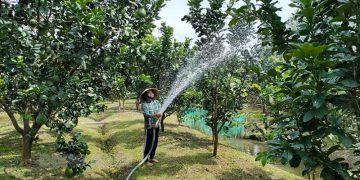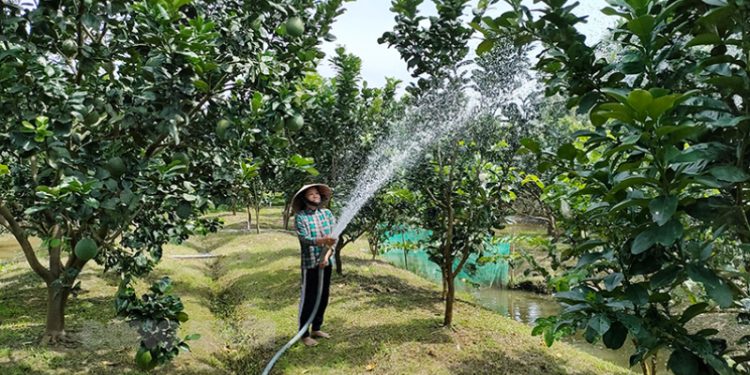#ClimateChange #AgriculturalCooperatives #AdaptationStrategies #SustainableAgriculture #CommunityResilience #VietnamAgriculture #ClimateResilience #InnovationInFarming #ClimateSmartFarming #MekongDeltaRegion
Climate change poses significant threats to agricultural communities, affecting farmers, agronomists, agricultural engineers, and farm owners worldwide. In the Mekong Delta region of Vietnam, where agricultural activities are vital to the local economy, climate change has led to challenges such as saline intrusion, sea-level rise, and extreme weather events. In response to these challenges, the government has implemented Decision No. 854/QD-TTg, approving a project to enhance the adaptive capacity of agricultural cooperatives in the region between 2021 and 2025.
Current Initiatives and Progress
The project focuses on mobilizing resources, integrating economic resources from the province, and funds from the National Target Program for New Rural Development (NTM). As of 2023, the provincial government has allocated a total budget of 5.331 million Vietnamese dong to support the collective economic development of agricultural cooperatives. Currently, the province boasts 147 agricultural cooperatives and 1 cooperative alliance, comprising 34,671 members with a registered capital of 66,297 million Vietnamese dong. Notably, in 2023, 10 new agricultural cooperatives and 1 cooperative alliance were established, while 3 cooperatives were dissolved due to various challenges faced, including saline intrusion, tidal surges, drought, and pests, impacting fruit-bearing cooperatives significantly.
Community Awareness and Adaptation
Recognizing the importance of raising awareness and implementing adaptive measures, the provincial government has intensified its efforts in public education. Various platforms, including Zalo groups, have been utilized to disseminate relevant information about climate change impacts and adaptation strategies. These initiatives have enabled local communities to better understand the challenges and transform their production methods effectively, aligning with the changing climate conditions.
Supporting Agricultural Cooperatives
To facilitate the adaptation of agricultural cooperatives to climate change, the province has provided support in several crucial areas. Fourteen agricultural cooperatives have received assistance in implementing source traceability labels, ensuring the authenticity of their products. Additionally, one agricultural cooperative has been supported in achieving Hazard Analysis and Critical Control Points (HACCP) certification, enhancing the safety and quality of their produce. The integration of digital technologies within agricultural cooperatives has been encouraged, promoting a shift from traditional management methods to more flexible and efficient production and business models. This digital transformation aims to enable cooperatives to organize their services effectively, integrate source traceability, and facilitate product sales through e-commerce platforms.
Enhancing Resilience and Water Management
In response to the challenges posed by climate change, the provincial government has directed the implementation of various solutions. These include closely monitoring weather patterns, enhancing saltwater intrusion monitoring at river gates, and issuing timely warnings to farmers. Moreover, efforts have been made to improve freshwater supply. This involves investing in the expansion and upgrading of existing water treatment plants and utilizing reverse osmosis (RO) filtration systems. Additionally, barges are deployed to transport raw freshwater to treatment plants, ensuring an adequate supply for agricultural and domestic purposes.
The efforts undertaken by agricultural cooperatives in the Mekong Delta region are commendable, showcasing their resilience and determination in the face of climate change challenges. By embracing innovative practices, raising community awareness, and leveraging technological advancements, these cooperatives are not only adapting to the changing climate but also fostering sustainable agricultural practices. Collaborative initiatives between government bodies, scientific communities, and local farmers will play a pivotal role in ensuring the long-term viability of agriculture in the region.































